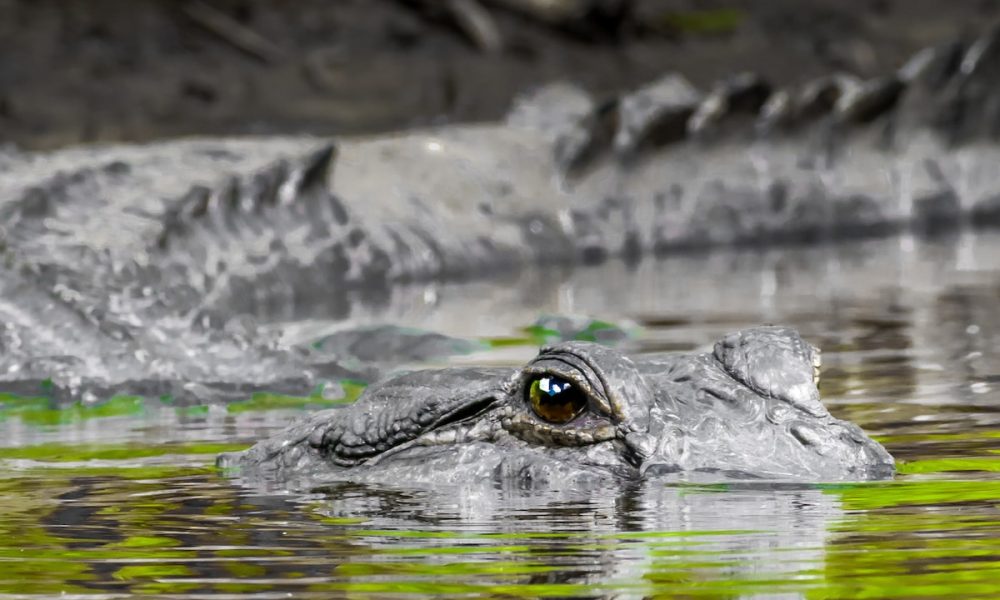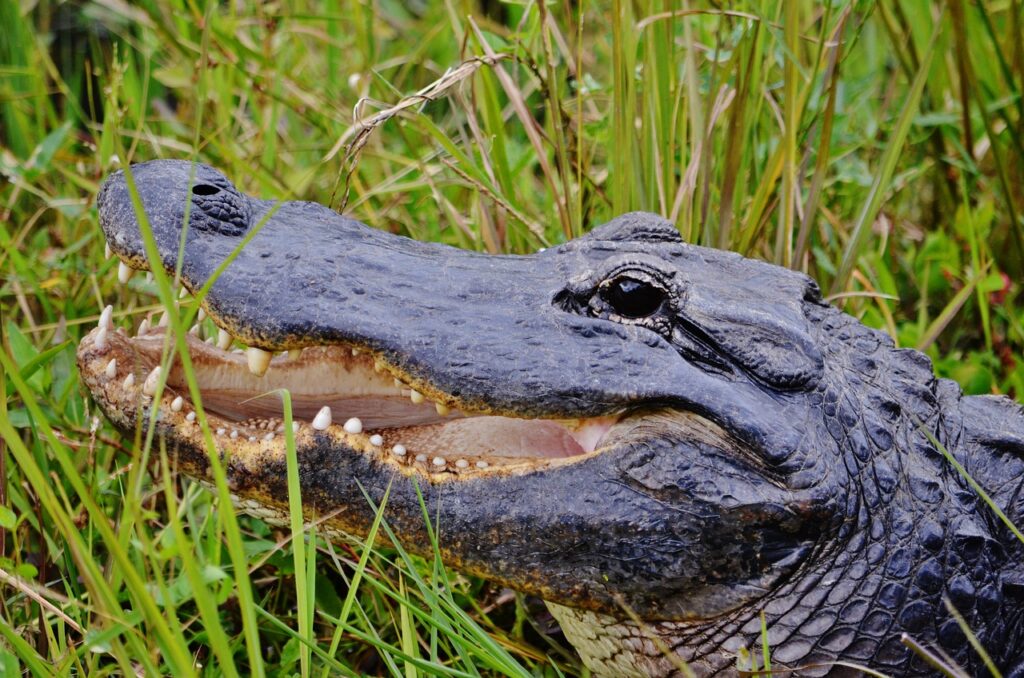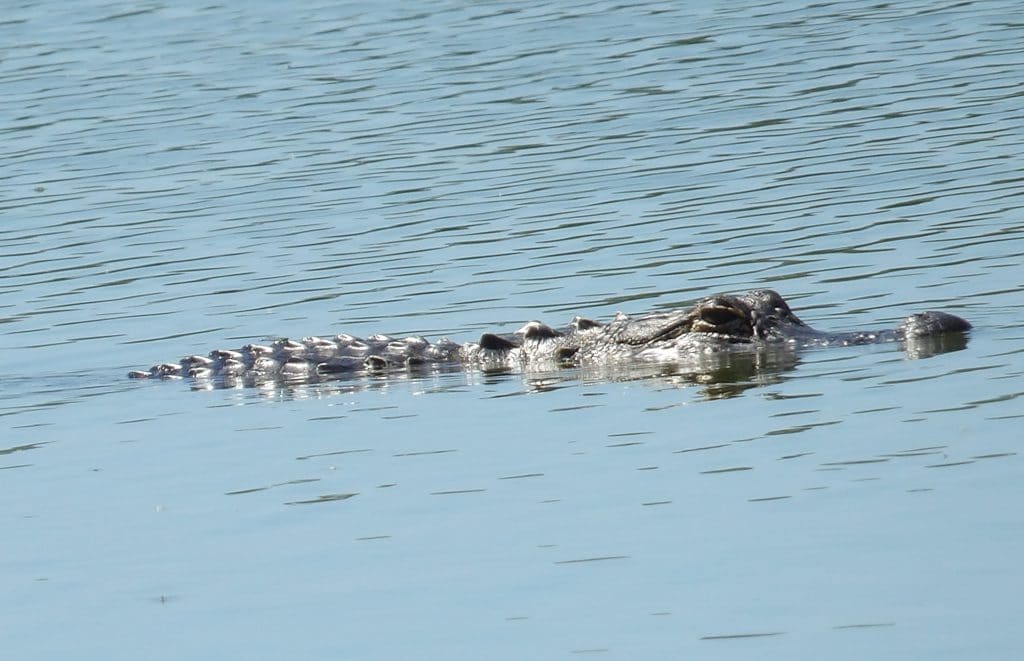
We Floridians have some of the most fascinating and fierce neighbors- Alligators. On one hand, we have a natural and healthy fear of these ferocious predators. Yet, we can help but admire and respect them.
Even so, there are still individuals who get a kick out of bothering a sun-basking gator. Plus, many Florida residents are unaware of the proper Alligator safety measures. And unfortunately, year after year, this results in attacks on humans.
And during mating season, alligators are particularly defensive and on guard. However, there are safe and smart ways to observe alligators without provoking an attack.
In this blog, World Class Wildlife Removal describes why gators are especially aggressive during mating season.
Continue reading to ensure your safety and perhaps survive a rare encounter with a Florida alligator.
Mating Season for Alligators
From April to June, gators all across Florida will be more active with the start of the mating season. During these months, you are much more likely to see alligators. In fact, you might even spot one in your backyard or the pond across the street.
It is essential to be aware of how alligators are highly aggressive in these few months. The search for a suitable mate brings out their competitive and threatening characteristics as they fight to carry on their species.
Competition
During the alligator’s mating season, you may notice fresh battle scars on large males. This is because male gators fight for their territory. More specifically, an alpha male will drive out the other males in his area. And if any gator should choose to challenge him, a brawl is likely to occur.
The Quest for a Mate
When the weather warms for spring, alligators begin their quest for a mate. If you live in an area where a large population of gators resides, you may hear low bellowing sounds or growls signifying the start of the mating season. Alligators use this call to announce their presence among other gators and assert their dominance.
Males perform what is called a “water dance.” For this, the gator will slap the water with its tail and jaws. Alligators will also create vibrations in the water, especially when they bellow.
Additionally, both males and females leave behind scent trails from their musk glands that act similarly.
Courtship
Once the gator has found a potential mate, the courtship process begins. The rituals are very expressive and complex. Behaviors include rubbing against each other’s snouts and backs, and the process can last hours. Gators will also submerge their potential mate underwater, testing for strength and readiness.

Alligator Nests
In contrast to the courtship behaviors, the actual act of mating only lasts for minutes. And soon enough, the female alligator is ready to lay her eggs. First, she builds her nest with mud and local vegetation. Then, the female gator will lay about 20 to 50 eggs and cover them with more dirt and plants. As time goes by, the leaves and grasses begin to rot, acting as an incubator for the freshly laid eggs.
The mother will stay by her nest for the entire incubation period, which lasts about 65 days. The baby gators will call out to their mother from inside their eggs to signal they are ready to hatch. Then, the female gator will brush off the top layer of mud and wait for the arrival of her hatchlings. Baby gators will stay by their mother’s side for the next year until they mature and leave for a life on their own.
Additionally, female alligators are known to be particularly aggressive during the entire process of caring for their young. She is on guard and protective from when she lays her eggs to when her babies are ready to leave.
Where are Alligators in Florida?
For centuries, gators have inhabited our land. In fact, Florida is home to over a million alligators.
So, where can you see Florida alligators? Or better yet, where don’t you see gators in Florida?
Gators are widely spread and abundant in our marshes, swamps, lakes, and rivers. However, during mating season, you may spot an alligator roaming through your very own backyard.
And if you are on the search for alligators, mating season is a perfect time to look. Take a trip to your local lake or park, and you will likely encounter an active gator. Do use caution, though. Seeing alligators out and about can be exciting, but always keep your distance and never approach or try to feed them.
Do Alligators Attack Humans?
Alligators don’t view humans as prey, and in most cases, they will leave you be. However, attacks on humans can occur for numerous reasons.
Loss of Habitat: With human expansion and development comes the loss of the alligator’s natural territory. And with the loss of their home, food can be scarce. As a result, alligators may be desperate for nutrients. And although humans are not preferred, they certainly are not off-limits, especially if the opportunity arises.
Harassment: Like most wild creatures, the alligator can become defensive and aggressive if threatened. And unfortunately, some people have a terrible habit of aggravating and irritating gators. That being said, never taunt or throw things at wild alligators. By harassing the gator, you are- quite literally– asking for trouble.
Feeding: Although well-intentioned, feeding local alligators is a very bad idea. In fact, it is illegal to feed alligators in Florida.
Upon feeding, gators will return time and time again for more food. And if food is not provided, they can become confrontational, and you may find yourself in a dangerous situation.
What About Pets?
Sadly, our precious pets are about the size of the alligator’s typical prey. So, when exploring the outdoors with your furry companion, keep them away from the water’s edge. Additionally, have your pet on a leash to ensure they’ll stay by your side and never allow them to drink from the lake or pond.

Safety Tips for Living Among Alligators
Here in Florida, our alligator neighbors make life interesting and thrilling. However, living with these carnivorous predators comes with responsibility. Our gators should be respected and treated with caution and care.
Below, we have provided our Florida residents with the dos and don’t of living among this incredible species:
Do avoid the grassy areas and banks near lakes and ponds where alligators like to hide.
Don’t feed alligators.
Do stay away from bodies of water at night and during the mating season.
Don’t swim in lakes or ponds known to have a population of gators, even if you don’t see any present.
Do give gators their space if you are observing them or taking their picture.
Don’t harass alligators in any way, including tossing objects at them, even from a safe distance.
What Should You Do if you Encounter an Aggressive Gator?
Mating season is around the corner, and alligators are on the move. But not only are they extra active in these months, but they are also more likely to become aggressive.
If you happen to encounter a gator showing aggressive behaviors, ensure your safety by doing the following:
Spotting a Gator While Swimming:
- Remain calm and locate the nearest shoreline.
- Quickly and quietly make your way to land.
- Avoid splashing by staying below the water’s surface.
- Once on land, run away and create as much distance between you and the gator as possible.
Encountering an Alligator on Land:
- Stay calm and run quickly in a straight line away from the gator.
- Run until you are about 20 feet away or until the alligator slows down significantly. Gators are fast but will tire easily.
- If the gator makes contact, fight back. They will likely determine you are not worth the effort and back off. Do this by attacking the animal’s most sensitive areas, such as their snout or eyes.
Keep in mind that attacks on humans are few and far between. And in most cases, they happen due to harassment or other irresponsible human behaviors.
World Class Wildlife Removal
If you discover an unwelcomed alligator on your property, contact World Class Wildlife Removal immediately.
At World Class Wildlife Removal, we deal effectively with the safe and humane trapping, removal, control, and capture of all kinds of wildlife. In addition, we are committed to helping you or your business handle wildlife conflicts with a humane, effective, and safe approach.
